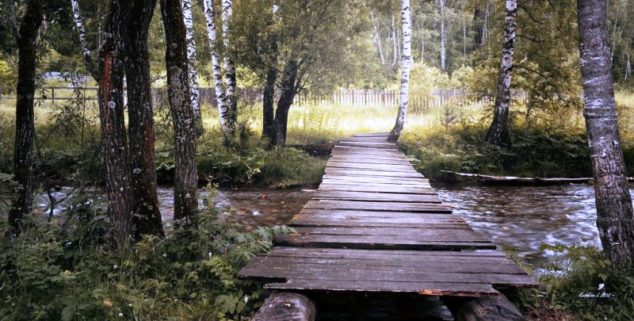Opinion
Feds’ proposed rules would erode tribal culture, history
 A bridge over tribal waters representing the transition from the past to the future. (Photo: Habematolel Pomo of Upper Lake)
A bridge over tribal waters representing the transition from the past to the future. (Photo: Habematolel Pomo of Upper Lake)Federally recognized tribes are sovereign governments – many of which have undoubtedly contributed vast, significant cultural contributions to the diverse tapestry of American social, economic and political life.
Despite this recognition and contributions to society, tribes like mine unfortunately must fight hard to be remembered, respected and included in policy discussions at all levels of government—even when those policies could have significant impacts on our communities and our culture.
This would all be a far cry from what Congress intended when it passed the National Historic Preservation Act of 1966.
The latest example of this is a set of rule changes proposed by the National Park Service (NPS). As written, the rules would give unprecedented power to the U.S. government and big business by allowing them to prevent a site from being considered worthy of preservation and protection for its historical and cultural significance by listing it in the National Register of Historic Places (NRHP).
One rule change would prevent any revered site located on federal lands from even being considered for preservation unless the relevant federal agency requests the determination.
In other words, there would be no way to determine a site’s eligibility for inclusion on the NRHP list unless an entity of the U.S. government made the request. This would essentially leave the process in the hands of culturally insensitive bureaucrats who aren’t particularly interested in the preservation of Native culture.
Another proposed rule change would prevent properties from being listed in the NRHP if objections were received from a person who owned a majority of land or property in the area.
Such a change would clearly benefit big mining businesses whose financial interests conflict with the preservation of significant sites whether they be tribal or not. A large company with a majority of nearby land holdings could effectively veto the inclusion of a property in the NRHP even if many others clearly wanted its inclusion.
Tribes from across the nation raised their voices to decry this rule change and demand a formal government-to-government consultation.
This would all be a far cry from what Congress intended when it passed the National Historic Preservation Act of 1966. The law, as intended, was written to help any individual, property owners or interest groups identify and protect historic sites within the United States. The law was also designed to prevent rampant federal development from destroying our nation’s heritage – one that includes sites sacred to Tribes and is comprised of lands outside of the artificial bounds imposed by reservations.
The National Park Service (NPS) initially found that it was not obligated to engage in tribal consultation over the proposed rule change. This conclusion was in conflict with an executive order dating back to Nov. 6, 2000, that requires federal agencies to consult with Tribes on any department regulation, rule making, policy, guidance or legislative proposal that could have a substantial and direct effect on an Indian tribe.
Tribes from across the nation raised their voices to decry this rule change and demand a formal government-to-government consultation.
I personally flew to Washington, D.C. to engage with embers of Congress in order to share my tribe’s worries about this flawed rule making. I am happy to share that our engagement resulted in the NPS’ decision, announced last week, to engage in tribal consultation over the proposed changes.
I truly hope that this is a legitimate consultation where the NPS takes into account the concerns raised by Indian Country. Far too often the federal government looks at its duty to consult with Tribes as merely an exercise meant to “check the box.”
The Habematolel Pomo of Upper Lake Tribe, for which I have the privilege of serving as chairperson, has restored lands that consist of a mere 11.24 acres, a fraction of what was once our aboriginal lands. However, our people’s history, cultural patrimony and sacred sites extend throughout Northern California’s Clear Lake Region and beyond.
My tribe depends on the effectiveness of the NRHP to protect our sites of cultural, spiritual, and historical significance outside the boundaries of our reservation lands. I hope that the NPS realizes the flaws in its proposed changes and abandons this rule making effort.
—
Editor’s Note: Sherry Treppa is chairperson for the Habematolel Pomo of Upper Lake, a federally recognized Indian Nation located in Upper Lake, California.
Want to see more stories like this? Sign up for The Roundup, the free daily newsletter about California politics from the editors of Capitol Weekly. Stay up to date on the news you need to know.
Sign up below, then look for a confirmation email in your inbox.

Leave a Reply